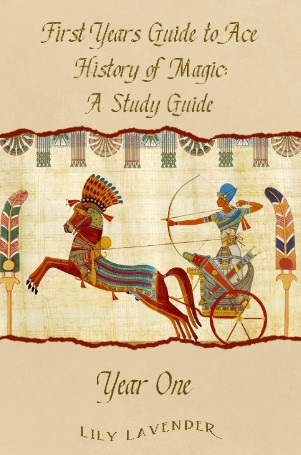First Years Guide to Ace History of Magic: A Study Guide
By Lily Lavender
This book is intended for all who need a quick study reference guide for HOM-101. It has a glossary of terms & its appropriate meanings for the entire course. Each chapter is based on a lesson; where it won't go into grave detail, but will give you the necessary components to study for upcoming tests & assignments. This does not include mid-term & final exams. All detailed information about each topic is in your official lessons with the Professor. DO NOT COPY AS IT IS PLAGIARISM!
Last Updated
May 31, 2021
Chapters
10
Reads
3689
Lesson Nine Study Guide
Chapter 10
This lesson is not included in the final exam. This is just interesting information about the Greek religion, Confucianism, Buddhism, & Hinduism religions.
Greek Rationalism & Confucianism
If something isn't explained scientifically, it is considered not rational. Democritus agreed that this method is the right method to use. Due to this, Muggle people were biased & very negative towards wizards & witches who use magic. If you couldn't explain how you did magic, it was a hoax. Muggles often condemned magical people for blasphemy & for being foolish. In 1600, it became a great risk to use magic. This was taught in the fifth & sixth centuries (BCE) in China by Confucius. It was another option of knowledge instead of criticizing magic. They insist that magic is from li or from rituals. This might be the reason why women weren't using magic, but men used it a great deal. Li is harmony; the most important value of magic. Ren is loyalty to kindness & compassion. Shu is to help others. De is honor. Zhi is the craving for wisdom. Xi is honesty.
Buddhism & Hinduism
In the fourth to sixth centuries (BCE), the religion was from India & was popular in central, eastern, & western Asia. It relies on the Four Central Truths & Dukkha. Nirvana is when a person has real joy & happiness. Once a person has reached Nirvana, you have completed the Four Central Truths. Dukkha is the first. Samsara is the second. Karma is the third. Liberation is the fourth. This religion has four denominations. Vaishnavism & Shaivism believe in one god; Shiva. Shaktism & Smartism believe in multiple gods & goddesses. Dharma, Artha, Kama, & Moksha are the important Purusarthas. Hinduism spells were made by songs & mantras. They are good at charms, conjurations, & enchantments that are protective. Dharma is the ambition of religious duties, moral values, & true behavior. Artha is the desire for wealth, a healthy life, & financial comfort. Kama is the joy of life. Moksha is liberation & rebirth.



